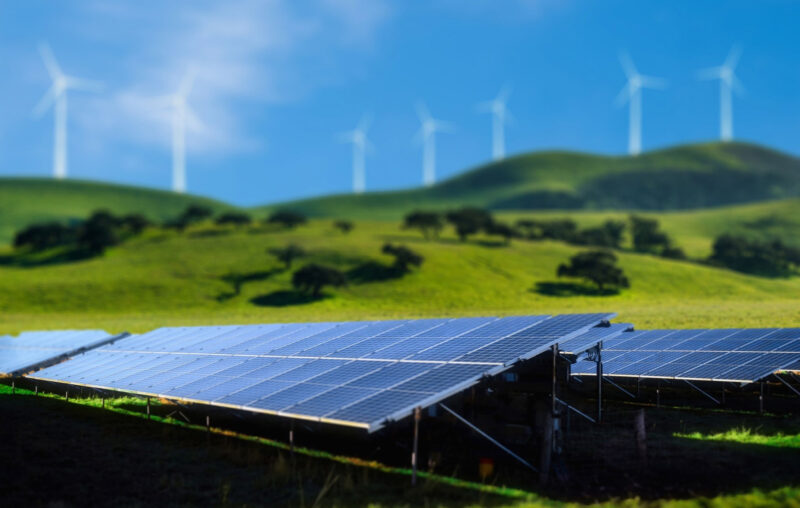Transition This, Transition That

Fossil fuels get a lot of slack these days. Outside of geographic hubs where mining, drilling, and oil refinery dominate local labor markets, working in the oil industry is hopelessly unappealing to young people. It’s a horrific, evil sector; it’s a dying industry; oil companies are literal dinosaurs, about to go extinct in the green revolution.
Or maybe not.
Earlier this month, Pilita Clark addressed this in the Financial Times. In an excellent example of gaslighting and Orwellian double-speak, Clark’s politically favorable conclusion was totally at odds with the content of her otherwise excellent article.
Given all the green fuss in the decades since the first annual United Nations meeting on climate — and the 3,000 times Clark’s media database mentioned “energy transition” in a week — you’d think green is the new black. In the mid-1990s when greening the world became a hot political topic (the Kyoto protocol, the predecessor to the Paris Agreement, was signed in 1997), the energy mix of the world was 86 percent oil, gas, and coal. After three decades of climate change chatter, energy “transitions,” countless government subsidy programs, invasively ugly wind farms popping up everywhere, and an unhealthy obsession — at least in the West — with all things sustainable and ESG (Environmental, Social, and Governance), we’ve hit the unbelievably successful rate of… 82 percent.
Let me spell that out more clearly. Think about everything green you’ve heard for the last three decades: climate scientists talking, politicians nagging, taxes levied, and rules and regulations enforced; your friends and family and colleagues green-proofing their houses, or buying an electric car, or committing to not flying because “the environment,” really matters. Think about all the climate efforts at work, the solar and wind parks popping up like mushrooms on a damp autumn day; all the people becoming ESG consultants, green investors, wind turbine engineers, and on. And on. And on.
And all you’ve got to show for is a reduction in the energy ratio from 86 percent to 82 percent over thirty years.
If I linearly and totally unprofessionally plot that out, we’ll hit a fossil free energy sector sometime in the weening decade of the 26th century. (Yes, yes, the true believers claim that the process is “obviously exponential — is it?) We can re-interpret the movie 500 Days of Summer as 500 years of energy madness. NGMI, as the cool kids say (“Not Gonna Make It”).
This is all going to change, writes Clark only halfway optimisticly, “The need for faster climate action has never been more widely accepted.” The fact that nothing is happening “underlines the strange period of climate stuckness we have entered.”
“Reality” might be a better word for it; the physical world is a lot harder to smooth talk your way through.
Look at the energy usage in the graph below from Hannah Ritchie at Our World in Data. Every energy transition we’ve had — from wood to coal and from coal to oil and gas—have been additive. As a civilization, we don’t replace prior energy sources; we add to them with better ones. Clarification: Better means cheaper or denser energy sources that therefore packs more punch.
Green energy (absent hydro, which nobody is building out anyway) isn’t that. Some even say it’s impossible: Wind turbines have reached their peak heights, efficiency ratios, and material use; battery technology is improving too slowly; they can’t scale to where their proponents’ very loud mouths are.
Clark also understands the reason that green energy, ostensibly so much “cheaper” than their dinosaur competitors, have failed to reduce costs for consumers, either at the pump or on the grid. “As energy use has grown, the global green surge has so far amounted to an addition to fossil fuels, not an emphatic substitute for them.”
No surprise there, since you’re duplicating the grid with an inferior system. Green energy sources aren’t adding to our energy use, but their extra infrastructure and privileged rule framework make the rest of the grid and energy system work less well. This is why places that add lots of green electricity see their prices go up rather than down.
The clear and all-too-common rejoinder is that we have to do more faster, and invest more money. But that doesn’t help. We can’t physically do more: We run out of literal space for turbines, the materials prices for grid and towers get squeezed, the battery tech isn’t there. Throwing money at research problems doesn’t work.
The impossibility of green energy isn’t just the difficulty in overcoming technical obstacles in a few key industries, but the doubly impossible thing of wanting to invent something we don’t have while at the same time replacing the energy sources that power civilization (even though that’s never happened before).
Maybe the Queen in Alice in Wonderland can believe as many as six impossible things before breakfast, but Lewis Carroll’s nineteenth-century story is a work of fiction meant to ridicule and entertain — not a serious framework for how to think about twenty-first century energy use.
I can think of a dozen impossible things that the ruling classes of today embrace on a daily basis, but putting them in practice means overcoming the constraints of the physical world. It’s not words, hearts, or minds that must be swayed, but an inert reality filled with people who’d rather live, grow, and prosper than follow your hypocritical edicts.









